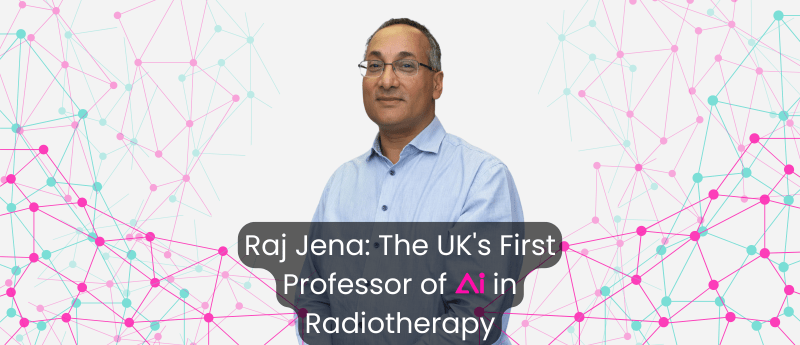Raj Jena from Cambridge University Pioneers as the UK’s First Professor of AI in Radiotherapy

Oncologist Raj Jena from Cambridge University (CU; Cambridge, UK) has been designated the first Clinical Professor of AI in Radiotherapy in the UK. This marks a significant milestone in the university’s oncology plan and the broader implementation of AI in modern cancer care.
Professor Raj Jena, an academic radiation oncologist at Cambridge University Hospitals NHS Foundation Trust and a researcher in the University’s Department of Oncology, emphasizes that while AI is already being utilized in cancer research, there remains substantial potential to further enhance current oncology procedures with groundbreaking technologies.
An Increasing Need for Faster Data Processing
One of the biggest obstacles contemporary cancer researchers face when attempting to deploy AI devices is obtaining the computer power required to process vast volumes of data rapidly.
To address this, Professor Jena is determined to help ease data decoding procedures by establishing investigation partnerships to collect large datasets that could be used for the further development of AI-powered devices.
“There are amazing AI tools being developed, but they need more data to feed on than one hospital or one healthcare system can generate. The Professorship will make a concrete difference in terms of building networks and leading projects. We need to bring together the right teams and expertise to research these things”.
Professor Raj Jena – academic radiation oncologist at Cambridge University Hospitals NHS Foundation Trust, and researcher in the University’s Department of Oncology.
OSAIRIS: An Innovative Tool That’s Already Making Waves
One of the key innovations stemming from Professor Jena’s research is OSAIRIS, the first cloud-based AI technology implemented within the UK’s National Health Service (NHS).
OSAIRIS segments radiotherapy images to detect and preserve healthy tissue, decreasing the time clinicians spend in organ delineation and scanning by two and a half times.
The tool, which is currently being used at Addenbrooke’s Hospital in Cambridge, also reduces waiting times for patients between the referral for radiotherapy and the commencement of treatment.
Groundbreaking Developments in Sight
In his ongoing pursuit of increasingly effective AI applications to enhance modern oncology, Professor Raj Jena is making a groundbreaking advancement with the development of a new radiotherapy device designed to detect tumours.
To do this, researchers will input scans into the AI-powered system, trained on a global dataset of medical images. The tool will then attempt to recommend suitable radiotherapy treatments.
Building on the success of OSAIRIS, this innovative initiative aims to improve cancer care services in developing countries where radiotherapy machines and trained personnel are limited.
However, despite its promising potential, Professor Jena acknowledges that this is an ambitious project still in its early stages.
“It takes over from OSAIRIS, but of course marking out tumours is much more difficult than marking out healthy tissues – and is usually where the human expertise comes in. However, it looks as if the programme can make a reasonable first attempt, and we’ve already had some initial success.”
What’s to Come?
Recent developments in oncology have evidenced that AI can be an invaluable tool for the research and treatment of different types of cancer.
Prof. Jena agrees with this vision. He believes that AI has the potential to become a “game changer” for advancing current cancer care by easing scan preparation procedures and shaping treatment plans.
“We’ll start to see AI impacting in each stage of the patient’s treatment. There’s a lot of AI that’s focusing on being able to pick up tiny cancer signals among all the ‘noise’. So, we’ll have more early detection programmes, and instead of having to wait for a cancer to be big enough to see on a scan, we’ll be asking: Can we instead analyse breath, or a finger prick of blood?”
Moreover, Professor Jena envisions that looking ahead, patients will have access to their own “avatar” for monitoring their general wellbeing. This would allow them to receive initial guidance on potential diseases from AI devices trained with appropriate datasets.
Afterwards, AI tools would evaluate the seriousness of the patient’s condition and suggest further steps to follow, including monitoring the situation from home or advising a visit with their doctor.
However, despite these promising prospects, the challenges and limitations regarding AI device clinical validation, data privacy and its ethical application in modern clinical procedures cannot be overlooked.
This context impedes the wider adoption of AI as a reliable tool in modern healthcare. Therefore, future research should focus on tackling these challenges to ensure that current healthcare practices prioritize protecting patients’ needs not only in cancer research but also in broader medical contexts.